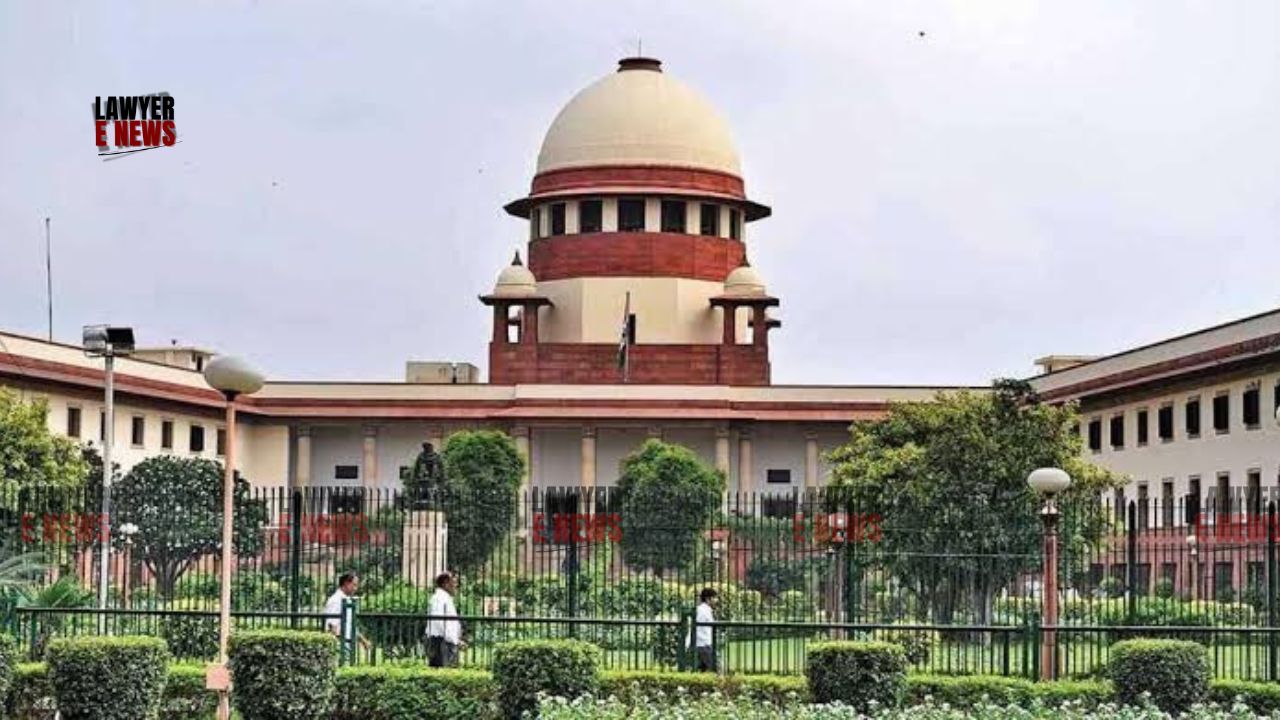-
by Admin
16 February 2026 5:45 AM



“Criminal Law Cannot Be a Tool for Vengeance in Matrimonial Disputes”: Supreme Court Reiterates Need for Specific Allegations Against Accused Relatives. In a landmark ruling, the Supreme Court of India has once again cautioned against the misuse of Section 498A IPC, the Dowry Prohibition Act, 1961, and the Domestic Violence Act, 2005, by quashing criminal proceedings against two distant relatives who were falsely implicated in a matrimonial dispute. The Court observed that criminal prosecution cannot be initiated against extended family members based on vague and generalized allegations, emphasizing that criminal law should not be used as a tool of harassment in matrimonial conflicts.
The bench of Justice B.V. Nagarathna and Justice Nongmeikapam Kotiswar Singh set aside the Telangana High Court’s refusal to quash the criminal proceedings, declaring that there was no prima facie case against the accused distant relatives. The Court remarked: "The tendency to implicate all members of the family in matrimonial disputes is a growing concern. Criminal law is meant to punish actual wrongdoers, not to entangle innocent relatives who have no direct involvement in the alleged acts of cruelty or dowry harassment."
The dispute arose from a marital discord between Premlata (complainant) and her husband, Dr. Samuel Suresh, who got married in August 2016. The complainant alleged that her husband and in-laws subjected her to cruelty and dowry harassment, demanding an additional ₹10 lakh and 15 tolas of gold.
Jhansi and Jabali, the appellants before the Supreme Court, were distant relatives who neither lived with the complainant nor played any active role in her marriage. Despite this, they were accused of pressuring her to conform to the husband's demands and allegedly participating in Panchayat meetings where the family disputes were discussed.
The FIR registered under Sections 498A (cruelty) and 506 (criminal intimidation) IPC, along with Sections 3 and 4 of the Dowry Prohibition Act, also led to proceedings under the Domestic Violence Act, 2005. The appellants approached the Telangana High Court seeking quashing of the proceedings, but the High Court refused, holding that there were some allegations that required trial. Aggrieved, they approached the Supreme Court.
Supreme Court's Ruling: "Criminal Prosecution Cannot Be Based on Vague and Omnibus Allegations"
After carefully analyzing the FIR, charge sheet, and witness statements, the Supreme Court found that no specific acts of cruelty or dowry harassment were attributed to the appellants. The Court reiterated: "A vague reference to the presence of distant relatives in family disputes or their failure to intervene in domestic conflicts does not make them criminals. There must be specific allegations, clear roles assigned, and tangible evidence of active participation in the alleged offences."
The Court found that the only allegation against the appellants was that they ‘pressured’ the complainant to follow her husband’s and mother-in-law’s wishes. The Supreme Court emphasized that: "Generalized accusations of familial pressure without details of specific overt acts do not constitute cruelty under Section 498A IPC. The judiciary must prevent the misuse of criminal law as a weapon in matrimonial disputes."
Relying on State of Haryana v. Bhajan Lal, 1992 Supp (1) SCC 335, and Anand Kumar Mohatta v. State (2019) 11 SCC 706, the Court reaffirmed that mere allegations without factual foundation do not warrant criminal prosecution.
On Domestic Violence Allegations: "Protect Genuine Victims, But Do Not Criminalize Families Without Basis"
The Supreme Court also quashed proceedings under the Domestic Violence Act, noting that: "Domestic violence is a serious issue that must be addressed with sensitivity, but criminal proceedings must be rooted in specific, actionable allegations. Merely being a relative of the husband does not make one complicit in domestic violence."
The Court found that the complainant’s second complaint, filed under the Domestic Violence Act, merely reiterated the same allegations as the dowry harassment case, without assigning any specific role to the appellants. The judgment emphasized: "A mother-in-law’s sister or her son cannot be automatically presumed to be abettors of cruelty or violence. Criminal trials should not be instruments of coercion in family disputes."
Judicial Observations: Protecting Family Integrity from Unwarranted Criminal Proceedings
The Supreme Court strongly cautioned against the growing trend of implicating extended family members in dowry and domestic violence cases without proper legal basis. The bench observed: "A family dispute, however bitter, does not necessarily translate into a criminal offence. Courts must be wary of allowing criminal law to be used as a means to settle personal grievances."
The Court reiterated that: "The institution of family is built on trust, mutual respect, and emotional bonds. While genuine cases of cruelty and domestic violence must be punished, indiscriminate criminalization of family members weakens the very foundation of familial relationships."
Supreme Court Quashes Criminal Proceedings Against the Appellants
In allowing the appeal, the Supreme Court held: "Continuing this prosecution would be a travesty of justice. Criminal law is meant to punish genuine offenders, not to be wielded as a tool for vengeance against distant relatives."
The judgment is a crucial step in ensuring that criminal law is not weaponized in matrimonial disputes. The Supreme Court has reaffirmed that:
Criminal proceedings must be based on specific, provable allegations, not vague or omnibus claims.
Distant relatives cannot be dragged into matrimonial disputes solely because of their familial connections.
Courts must act as a safeguard against the misuse of stringent laws like Section 498A IPC and the Domestic Violence Act.
By quashing the proceedings, the Supreme Court has upheld the principle that justice must be fair, proportionate, and not a means for undue harassment. The ruling sends a strong message: "Justice must not only be done but must be seen to be done. The criminal justice system must not be misused as a means of settling personal scores or pressuring families into submission."
Date of Decision: 07/02/2025
